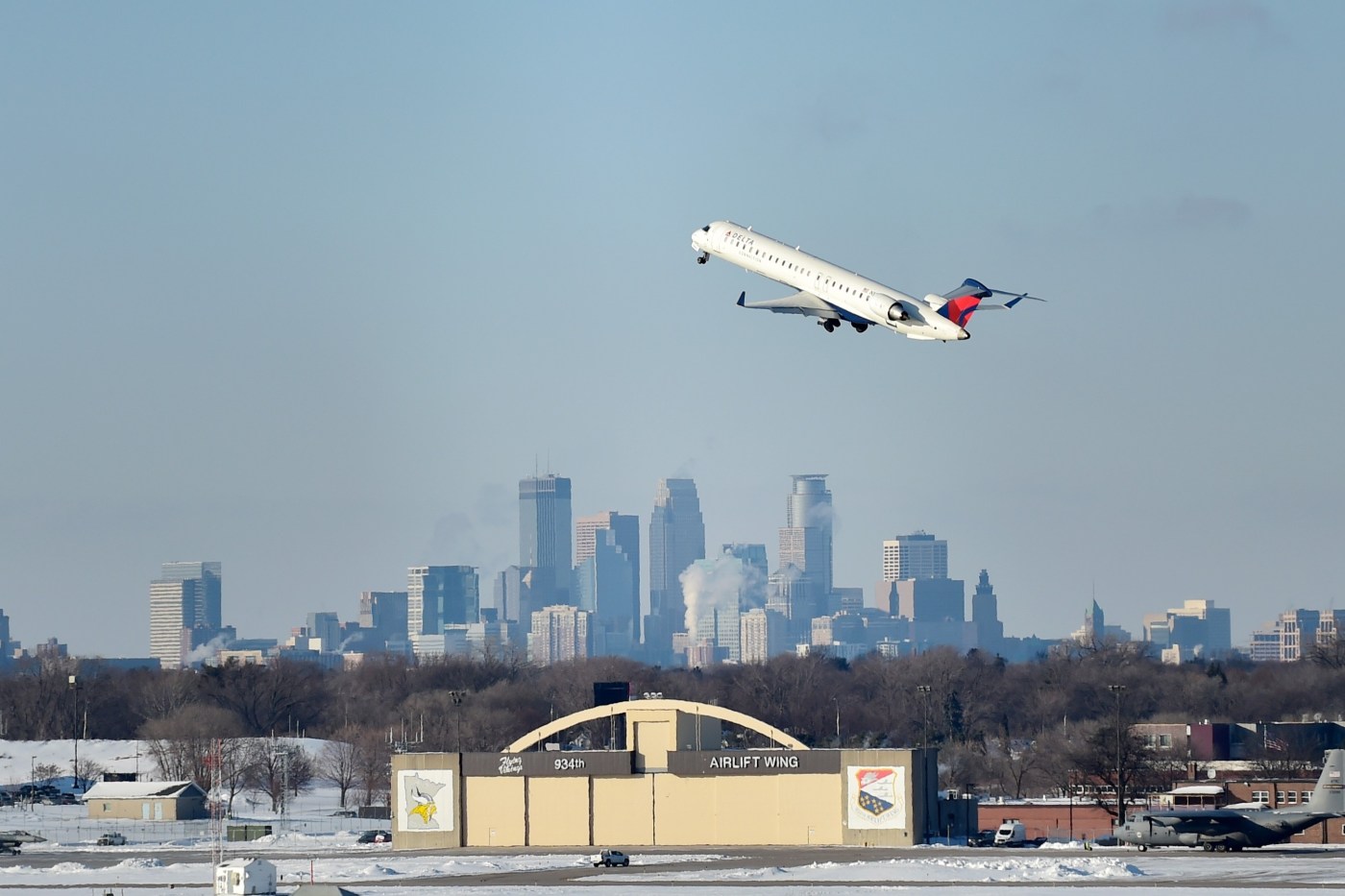
Minnesota officials weigh options as federal regulators threaten to rescind partnership between Delta Air Lines, Aeromexico
Emilia Gonzalez Avalos hails, originally, from Mexico City, but she’s made a life for herself in Minnesota, including 11 years as executive director of Unidos MN, a nonprofit that organizes Latinos from its Lake Street offices in Minneapolis. After resolving a residency issue, the four-hour Aeromexico flight she took from Minneapolis-St. Paul International Airport to visit family she hadn’t seen in decades was “incredibly personal to me,” she said.
Also incredibly personal to her is the prospect of losing that airline access.
The U.S. Department of Transportation gave its blessing eight years ago to an airline partnership that makes room for Delta Air Lines at Aeromexico terminals in Mexico City, Monterrey and Guadalajara. The same joint cooperation agreement allows Aeromexico to coordinate fleets and schedules while gaining a footprint at all of Delta’s majors passenger hubs, including Minneapolis-St. Paul International Airport, New York, Atlanta and beyond. In April, they added Boston’s Logan Airport.
In January, the DOT signaled that it will soon rescind its anti-trust permission for what’s been billed as the largest joint venture between a Mexican and U.S. airline. Federal regulators have accused the Mexican government of backsliding on promises to maintain cargo slots for U.S. carriers at Benito Juarez International Airport outside Mexico City, and Delta officials have maintained that they’re caught in the middle, if not being used as leverage, unjustly punished for a trade dispute that has nothing to do with their passengers.
More than 350,000 passengers
The prospect of losing easy access between the Twin Cities and major destinations in Mexico has alarmed Minnesota’s Mexican-American community, business advocates and lawmakers from both major parties. More than 350,000 passengers traveled through MSP on Delta/Aeromexico trips last year, including more than 86,000 passengers who flew direct between MSP and Benito Juarez International, according to Delta.
Eliminating the joint venture threatens the viability of some two-dozen airline routes between the two countries. Mexico is the nation’s largest trading partner, and Minnesota’s second largest trading partner. Since 2016, the joint cooperation agreement has facilitated trips for some 45 million passengers.
“It’s about real people with real ties who migrated to Minnesota,” Gonzalez Avalos said. “There’s a perception that the dispute only centers (on) businesses and business practices, and not actual people whose lives will be interrupted. This flight is four hours. I wake up early, get the kids ready, and I’m having lunch with my relatives at the local market in Mexico City. The alternative is at least eight hours, and it can get up to 12 hours, with layovers. I wouldn’t be traveling once a year with kids and my elderly mother if this changes. It would be just so hard.”
A spokesman for the DOT last week said he could not comment on the legal process except to say nothing has been finalized and no set timeline for implementation has been disclosed.
Elected MN officials weigh in
Delta, which has announced that it will pursue legal action if the DOT terminates the venture, has found growing support from elected officials in Minnesota, including Gov. Tim Walz, both U.S. senators, the entire Congressional delegation and St. Paul Mayor Melvin Carter and Minneapolis Mayor Jacob Frey.
Kurt Zellers, a former Minnesota House speaker and Republican lawmaker, has repeatedly reached out to the U.S. Department of Transportation on behalf of the Minnesota Business Partnership, which he runs. Agricultural companies in Minnesota have special reason to be wary, he said.
“Just this week I sent a longer letter to (DOT) Secretary Buttigieg,” said Zellers on Friday. “I’ve heard from a number of our members — especially the new NAFTA members — ‘this would be very bad for our business.’ If you’re going to be doing a regular round of business down there, you want to have access to those routes.”
Carter sounded a similar tune in a letter to the DOT in April.
“Mexico is our state’s second-largest trade partner, actively supporting 91,000 jobs and $2.8 billion in revenue,” wrote the mayor. “Our office is united with local and state leaders in wanting to prevent negative repercussions from the potential loss of the Delta-Aeromexico partnership.”
Two St. Paul-area state representatives — Rep. Maria Isa Perez-Vega and Rep. Samakab Hussein, both DFLers — met with the Mexican consulate in St. Paul last month to discuss the matter and have written separate op-eds, which have appeared in Twin Cities media.
“In response to infractions of the U.S.-Mexico air services agreement by the government of Mexico, the DOT is taking the unprecedented step of retaliating against U.S. consumers, jobs, air service and the strength of our economy by potentially terminating the (joint cooperation agreement),” wrote Perez-Vega, in an op-ed published in the Minnesota Daily in April. “The DOT should not remove the chalks on this decision without understanding the full scope of the ramifications.”
Related Articles
St. Paul: June 27 meeting planned on future U.S. 61 improvements
St. Paul: Snelling Ave to close in both directions between Montreal Ave. and Ford Parkway
Free car emissions repair program offered at metro area auto shops
Lake Elmo Inn owners to open new restaurant within downtown St. Paul’s Union Depot
St. Paul to expand electric vehicle network with East Side project


